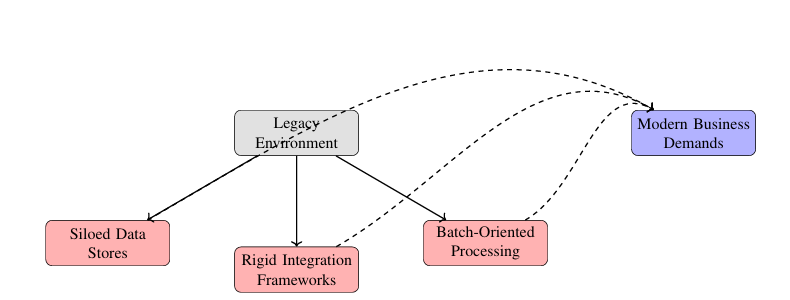Enterprise Data Ecosystem Modernization and Governance for Strategic Decision-Making and Operational Efficiency
Shinoy Vengaramkode Bhaskaran
Senior Big Data Engineering Manager, Zoom Video Communications.
https://orcid.org/0009-0008-0726-5403
Keywords: data-driven decision-making, data governance, data modernization, enterprise data ecosystems, legacy systems, metadata management, technological innovation
Abstract
In contemporary business environments characterized by relentless competition, global market expansion, and accelerated technological innovation, the role of data as a strategic asset has never been more pronounced. Enterprises are increasingly recognizing that effective data management and governance not only drive operational efficiency but also provide a robust foundation for informed, data-driven decision-making. However, many organizations continue to rely on legacy data infrastructures and fragmented systems that impede agility, accuracy, and timeliness in the production and consumption of information. As the volume, velocity, and variety of enterprise data proliferate, modernization of the data ecosystem becomes imperative to meet changing market demands, regulatory requirements, and customer expectations. This paper examines the critical components and best practices of modernizing enterprise data ecosystems, with a specific focus on guiding principles, architectural considerations, and governance frameworks. It begins with an exploration of the limitations inherent in traditional data environments, highlighting how such constraints undermine strategic decision-making. Subsequently, it discusses the key drivers and enabling technologies that facilitate the modernization journey, ranging from cloud-native platforms and flexible integration solutions to advanced analytics and machine learning capabilities. Central to this analysis is the emphasis on robust data governance models that ensure data quality, security, and compliance—cornerstones that not only safeguard corporate interests but also instill confidence among stakeholders. This includes attention to metadata management, lineage tracking, and the roles and responsibilities that drive accountability throughout the data lifecycle. The latter sections focus on how enterprises can operationalize their data strategies, foster a data-driven culture, and continuously adapt to emerging trends such as DataOps and AI-driven analytics. This paper provides recommendations that enterprises can use to achieve both strategic and operational improvements through a modern, well-governed data ecosystem.


